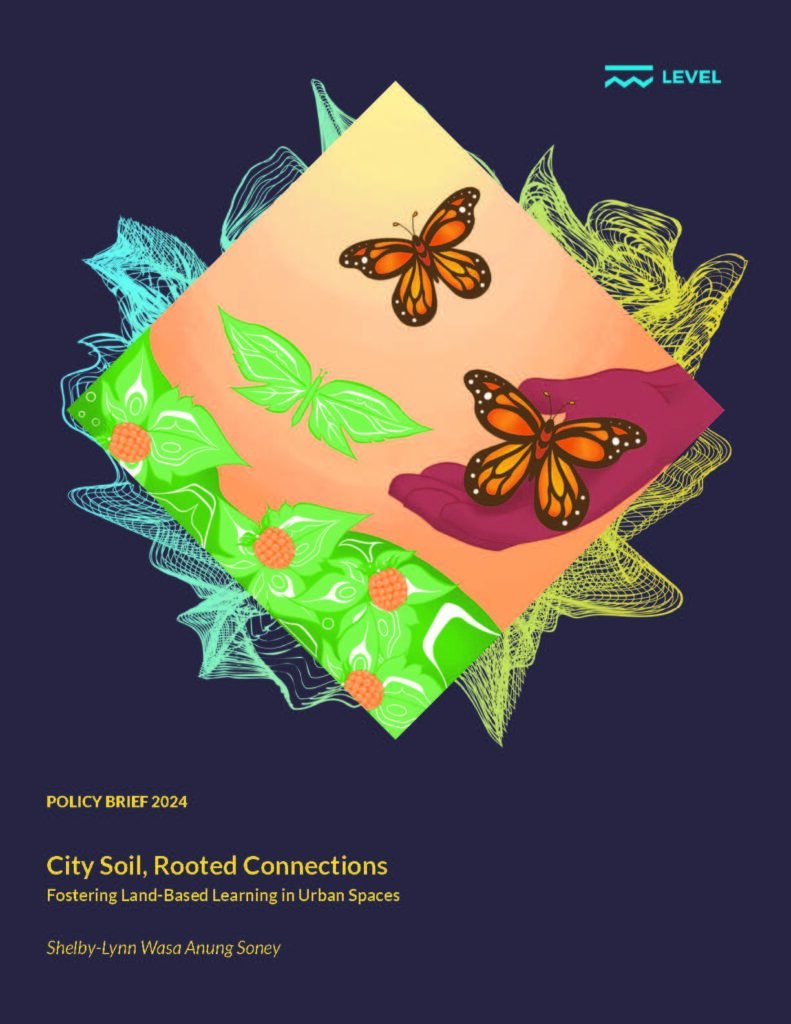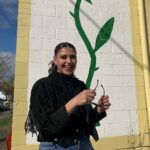This policy proposal advocates for the creation and expansion of land-based education programs rooted in Indigenous ways of life that are specifically designed to serve Indigenous, Black, POC, and Immigrant children and youth in urban settings. These programs are crucial to fostering strong, resilient communities and for bridging cultural, social, and environmental gaps that persist within the urban space. Investment in land-based education rooted in Indigenous ways of life is an investment in the future of our shared communities, our shared environment, and our shared humanity.
It is my belief and experience that these programs are able to foster connections between various different groups, communities, and individuals who otherwise may not have connected, thus creating community and allyship. By participating in these programs, Indigenous, Black, POC, and Immigrant youth will have the opportunity to build meaningful relationships, share experiences, and cultivate mutual respect and understanding.
This policy also emphasizes the importance of teaching youth about sustainable practices, environmental stewardship, and the reciprocal relationship between humans and nature. Globally, youth have long been strong advocates for the land, from Autumn Peltier to Greta Thunberg, and it is my belief that this passion and love for the land exists in all children and can be nurtured and encouraged through land-based education programs. Grounded in Indigenous knowledge, these lessons are vital for addressing the environmental challenges of today and tomorrow and for creating future advocates for the land.
This policy proposes several actionable items including:
1.Capacity Building
- Educator Training: Develop mandatory specialized training programs for educators to undergo if they are to participate in these programs. These training programs should be able to equip them with the skills and knowledge to deal with Indigenous students, practices, and ways of life with understanding and openness
- Youth Leadership Development: Establish leadership programs that empower Indigenous, Black, POC, and Immigrant youth to take on the role as educators, facilitators, and mentors within their communities.
- Partnerships and Collaboration: Fostering partnerships between Indigenous communities, educational institutions, local governments, and other organizations as a means of co-creating these programs. This will ensure the programs are culturally appropriate and community-led.
2.Infrastructure
- Invest in Public, Accessible, and Outdoor Community Learning Spaces: Community gardens, outdoor classrooms, and cultural centers are all examples of possible outdoor learning spaces. These act as a bridge for folks who may not be able to access further outdoor spaces to connect with and learn about nature.
- Transportation Support: The financial burden of many land-based education programs can be enough to deter many participants, and the further cost of transportation may be enough to make many programs inaccessible. Investment into free and subsidized transportation is necessary to ensure that all youth, especially those in remote or underserved areas, can participate in land-based education programs.
- Financial Aid for Participants: The cost of land-based education programs is one of the biggest barriers that many families face, as most programs cost hundreds of dollars, which is unfeasible for many. Investing in long-term subsidies, grants, and overall financial support is essential to bridging the financial gap.
3. Policy Integration
- Integrate Indigenous Land-Based Learning into Existing Educational Institutions: Existing educational and organizational institutions are urged to integrate Indigenous land-based education into existing educational frameworks and policies. This would aid in the recognition of these practices as a vital component of holistic, inclusive, and equitable education.
- Land Access Agreements and Partnerships: Promote legal agreements and processes that secure access to traditional land for educational purposes, ensuring Indigenous communities have the autonomy to access and use the lands according to their customs and traditions and needs.
This policy proposal is rooted in the belief that Indigenous land-based education offers a unique opportunity to bridge social, cultural, and environmental gaps within our communities. By empowering and investing in Indigenous, Black, POC, and Immigrant youth with knowledge that honors and connects them to the people of the land, we can cultivate a generation of leaders who are deeply committed to sustainability, equity, and community resilience.
Watch Shelby’s policy presentation:


